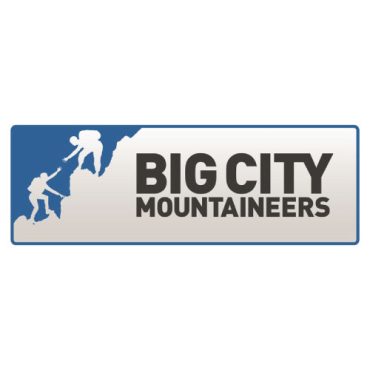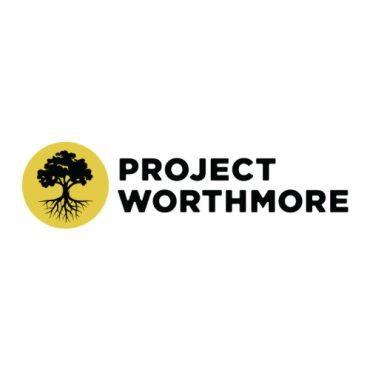It’s Sunshine Week. That’s a national campaign highlighting the importance of open government and the dangers of excessive and unnecessary secrecy.
Conversations are happening across the country this week, including right here in Colorado. This Wednesday, the Colorado Freedom of Information Coalition will host a panel at the Tattered Cover Bookstore in Denver, as well as a film screening of “The ABCs of Book Banning” at the Sie FilmCenter.
KGNU’s Jackie Sedley talked about these events, and the importance of the First Amendment to journalists and broader communities, with the Coalition’s Executive Director, Jeff Roberts.
-
 play_arrow
play_arrow
MorningMag_03_11_2024 Franziska Stangl
Jackie: So let’s start with some history. How did Sunshine Week come to be?
Jeff Roberts: So Sunshine Week has been around not all that long. It was started in 2005 by the American Association of News Editors, which, technically, I don’t think exists anymore. Um, it is now run by, um, the Brechner Freedom of Information Project at the University of Florida. And as you said, it’s a nationwide kind of celebration of the laws that entitle you to information about your government. And it’s, it’s an effort to make sure that people know about the laws and understand the laws.
Jackie: So, as I mentioned, you’re a part of the Colorado Freedom of Information Coalition, also known as CFOIC. Tell me a bit about the work that you do on a broader scale before we get into more details about, uh, freedom of information.
Jeff Roberts: Sure. CFOIC has been around since 1987, but it’s really the last 11 years or so that we’ve gotten really very active and we’ve tried to be an every, everyday resource for not only the journalism community in Colorado, but everyone. So, we do multiple things. The main thing probably is our Freedom of Information Hotline. We have or for no charge, we, you know, people will contact us and seek our help and we try to help them understand and use the laws, which in Colorado are the Colorado Open Records Act, the Criminal Justice Records Act, the Open Meetings Law, and the Court Access Rules. So, we do our best to do that. And if needed, we try to, we connect them with attorneys who specialize. in, in these, um, these matters. Um, I also write quite a bit about these laws. You’ll see that on our website at coloradofoic.org, and we also provide a very comprehensive online guide to these laws, and it’s, it’s absolutely free for anyone to use, um, doing it on, we used to do it in booklet form, but doing it online allows me to make it much more comprehensive and link to the law and the case law and also update it whenever, you know, There’s a change and that happens kind of frequently. So I urge people to go check it out on our website. There’s a tab on there called Sunshine Laws Guide, so they can see it there.
Jackie: So talking a bit more about those guidelines, we’ll touch on some bills that are currently working through the state legislator, later on. But first, what are some of the current most prominent standing obstacles and exemptions to obtaining public records in Colorado right now?
Jeff Roberts: Right. So, the way the open records law works at least the CORA works, is that there’s a very strong presumption of openness in the law but there are exceptions in there as well, and there’s exceptions that are throughout the state statutes and sometimes They’re in case law. So sometimes these exemptions are implied incorrectly. And so we have to fight back against those. Um, probably the most common, the most commonly incorrect, incorrectly applied one is for personnel files, so a public employee’s, uh, information about a public employee’s performance or their, you know, how they’re disciplined, things like that, um, governments try to withhold those records, um, and we have to fight back against that, and we often prevail in that regard. Um, a big obstacle, um, to obtaining public records in Colorado are fees, and it’s going to get worse, unfortunately, so we have a, uh, what’s called a research and retrieval fee built into CORA. It’s an hourly rate after the first hour, which must be free. Um, it’s currently 38, 33. 58 an hour but it’s tied to inflation and adjusted every five years. And this July, it’s going to go way up because we all know what’s happened with inflation. So it’s probably going to be more than 40 an hour. And when you multiply that 40 by five, 10, 20 hours. Obtaining public records can become very expensive. So, I, that’s the biggest obstacle. And, you know, I know we’ll talk a little bit about legislation that’s happening now, but I, I’m sort of seeing the current FORA bill in the context of something that’s going to happen automatically with the fees. And that’s one reason that we’re sort of pushing it back against it.
Jackie: How does Colorado compare to other states in terms of access to public records?
Jeff Roberts: Yeah, so, um, you’ll see that the Associated Press this weekend published some stories about that, and, and it’s really kind of all over the place with how different states handle access to public records. I would say that we’re better in some respects and worse in some respects. Better generally in, uh, Things like the, the, um, the timing in the law of when you’re supposed to be able to get public records, although that’s, that’s kind of fudged all the time worse in the respect of the fees that I just mentioned. Not everybody, not all the states charge for fees, some don’t charge as much as Colorado does. And there are other things that are better and have gotten a little bit better. There’s two public records laws. There’s the CORA and the Criminal Justice Records Act. They work very differently. There’s different presumptions of openness there. And, generally, it’s been very difficult for reporters and others to get a lot of criminal justice records in the past. But the legislature has made improvements the past few years in police internal affairs records and police body camera footage. So, those are more available than they used to be. There’s still some loopholes in those laws that we’d like to see fixed. But we’ve made some improvements there to, um, that deal with police transparency and accountability.
Jackie: You said based on different presumptions of openness, obviously that is potentially a pretty subjec subjective concept, right? How does that, how is that defined through, through your organization? How do you, how do you kind of conceptualize what openness means?
Jeff Roberts: Thanks. Yeah, so, that’s a good question, and the way the CORA, the Colorado Open Records Act is supposed to work there is a presumption of openness, and it’s really when those exemptions apply that, you know, you’re, that you’re not supposed to get records, but some things, other things happen, like we had a lawsuit this past year over text messages, there was a very violent hailstorm at Red Rocks that You might remember last summer, and reporters were trying to sort of get to the bottom of what the city of Denver’s response to, to that was. And so a reporter at Nine News, uh, requested text messages that the, uh, the person who runs Red Rocks and the person who, who is that person’s boss at Denver Arts and Venue, um. We’re sending each other not only during the storm, but the next day, the city of Denver said, well, no, those aren’t public records because they’re sent and received on their cell phones and we don’t collect those. So, the way the law has worked in practice is that it’s not the fact that they’re on cell phones, but it’s the content of the message. That determines whether they’re public business or not. So, there was a lawsuit over this and the judge said, yes, they’re public record. They had to do with the business of, of Red Rocks, which is a city facility. And so, you can get those ’cause they’re on that employee’s phone. One of the, one of the phones was the employee’s personal phone. The other one was a city issued phone, and the messages were, were getable from, from that. And so, the judge ordered them to be released. So sometimes those types of things happen as well. Um, in the criminal justice records law, there is a lot of leeway generally given to a criminal justice agency to decide whether disclosure or records would be contrary to the public interest or not. And so they’re supposed to conduct a balancing test of factors. There’s actually case law on this that came out of Columbine. And, um, they’re supposed to weigh factors that include things like an ongoing investigation, privacy issues, but also the public interest, which is what we all care about, right? Um, and so, that’s what sort of determines openness in a lot of ways. And it’s, it is, like you said, subjective. It can be.
Jackie: There’s a new law that was passed last year that requires criminal courts in Colorado to live stream proceedings. I know that there have been a lot of different bills kind of in that regard over the years, but first I wanted to touch on several bills that are working their way through the legislative process right now that would challenge government transparency and accountability if passed from the perspective of the Colorado Freedom of Information Coalition. So, I wanted to touch on a few of them, starting with House Bill 241296, which focuses on modifications to CORA, the Colorado Open Records Act that we’ve been talking about.
Jeff Robertson: Right. So this CORA bill was introduced. The, the reason was to help records, government records custodians, that’s what they’re called, the people who are in charge of keeping the, keeping the records of government because they’re, they’re getting more horror requests than they used to, um, and a lot of this has to do with sort of Our political divides, you know, people are, people are getting more interested in, in, state and local government, the federal government obviously. And one thing that they do is make more, more requests of government. And so, the sponsor of this bill is trying to, um, ease the burden on records custodians and, and, uh, this bill has changed a bit since she first conceived of it. We’ve been involved in, in a lot of the discussions and she has made some improvements with it, but we still think that it creates obstacles and, and we’re looking at it, um, in the context of those fees that I was talking about, talking about earlier. So it, it adds, uh, gives them more time to respond to the records requests. Um, and it also, um, uh, allows, um, Them to go to court to get someone declared to be a vexatious requester of public records. The way the bill was introduced, the government itself could decide that someone was vexatious and what that would mean in practice in this is they could delay the production of public records to that person for more than a month. And now the way the bill is worded, they can take their, they can go to court to do that. So, but someone still would have to fight that designation in court and, and, and we think that’s an issue. She has made accommodations for the news media in this bill, where the, the delays and that vexatious provision wouldn’t apply to the press. And, and the reason for that is that the press is, is in the business of informing everybody else. So, you know, you can make an argument that maybe there should be an accommodation for the press, although some people don’t like that differentiation. And the bill does some other things that we think are unnecessary. Um, she did have a, a very blanket provision in there about privacy, protecting privacy that she has now taken out of the bill, which we’re, we’re, we’re happy about because we think it could have been interpreted a lot of different ways, especially as it pertains to those disciplinary records of public employees that we talked about.
Jackie: The other one that I wanted to ask you about is Senate Bill 24157, that’s the Colorado Open Meetings Law for the General Assembly, and I wanted to bring that up because I know the legislature has been sued twice in the past year over Colorado Open Meetings Law issues, is that right?
Jeff Robertson: Yes, that is, that is correct. One of those lawsuits was actually brought by two members of the General Assembly, two members of the House. And that was settled, and then there was another lawsuit brought by a conservative group called the Public Trust Institute about a, something called quadratic voting. This was a, an anonymous balloting system That the how was the, the, the, the caucuses of the legislature we’re using to help them decide bills that affect the state budget. And the issue with that is that, um, we have this open meetings law, which was part of this Sunshine Act of 1972. The voters of Colorado actually put this into the statute and it says that the, uh, it’s the public policy of, of Colorado that the formation of. Public business shall not be conducted in secret. That’s what the voters wanted in 1972, the law still says that. And, and so this quadratic voting system, a judge found that it was a, an illegal, secret ballot and, and what they call a, a serial meeting of the legislature. And so Senate Bill 1 57. make some pretty significant changes to that 1972 law. Um, it changes the definition of what they consider public business to mean only things that have been introduced in the legislature, in the legislature, not things that they’re discussing maybe for that. And then another thing that it does that is most concerning to us is that it allows unlimited meetings by email, text message, disappearing messaging app. They use these apps called Signal and, and WhatsApp and things like that, where the message sometimes self destructs. And they, you know, they meet that way. And the, the Sunshine Law, as currently written, says that a meeting by electronic means is a meeting as well, that’s subject to the law. And so this would allow, um, legislators to meet in an unlimited way, that way, those records of those meetings, theoretically, would be subject to the Colorado Open Records Act. But they may not exist because they could disappear or they could be deleted. And there are also exemptions in the law. One in particular, called work product. That may mean that the person asking for those records could be denied.
Jackie: And Jeff, just in the last 25 seconds here or so, I wanted to give you the opportunity to just speak on, in a broad sense, how the pursuit of public records improves community life and or holds officials accountable in Colorado and elsewhere.
Jeff Roberts: Sure. I mean, the, the purpose of these laws, which are actually pretty new. I mean, since the 1960s is really when we’ve had these, these government laws, but the point of it really is to make sure that the people know and understand what government is doing. Sunshine week is around James Madison’s birthday. That’s why we have it this week. And he was the founding father, not only who, who, uh, wrote the first amendment to the bill of rights, but the one who articulated why. It’s so important for the people to have information about what government is doing for this democracy that they created.
Jackie: Jeff Roberts from the Colorado Freedom of Information Coalition. Thank you so much for talking with us this morning.
Jeff Roberts: Thank you very much for having me.



















